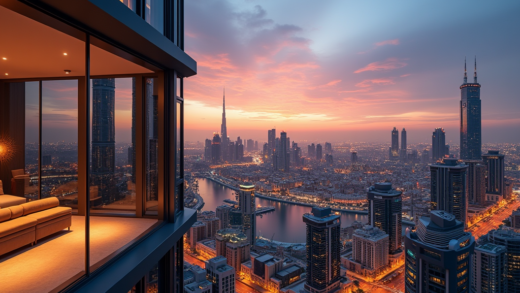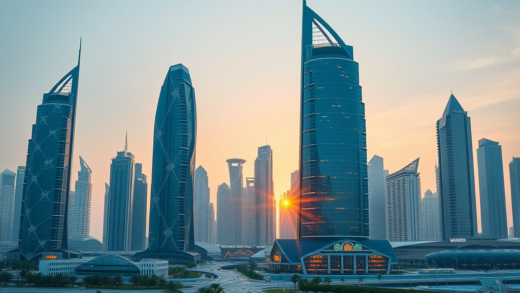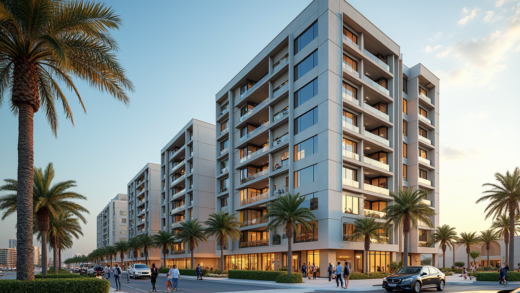The rapid development of industrial parks in Dubai has become a cornerstone of its economic strategy, fostering innovation, attracting foreign investment, and supporting a diverse range of industries. With the Emirate’s strategic location linking East and West, coupled with its robust infrastructure and business-friendly policies, industrial parks are emerging as vital hubs for manufacturing, logistics, and technology. This article explores the factors behind the growth of these industrial parks, their economic impact, and the future potential they hold for Dubai’s economy.
Factors Driving the Growth of Industrial Parks
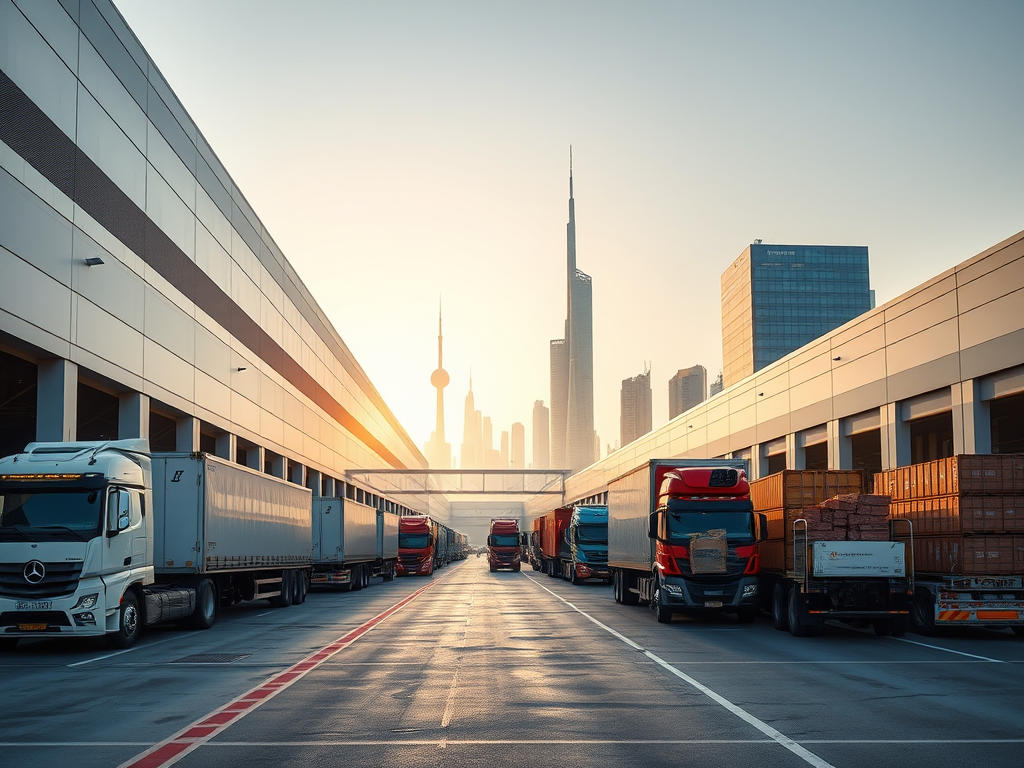
Several factors contribute to the expansion of industrial parks in Dubai, making it a favored destination for businesses worldwide. First and foremost is the city’s strategic location, which serves as a gateway for trade between Europe, Asia, and Africa. Secondly, robust government initiatives, including free trade zones and incentives such as tax exemptions, attract foreign investments.
Additionally, the UAE’s strong logistical framework bolsters the efficiency of supply chains, further enhancing its appeal. Here’s a numbered list summarizing these factors:
- Strategic Location: Proximity to key global markets.
- Government Incentives: Favorable regulations and tax benefits.
- Advanced Infrastructure: Well-developed transport and logistics networks.
- Diverse Economic Base: Support for various industries from manufacturing to technology.
- Foreign Direct Investment: Increasing inflow due to favorable policies.
Types of Industrial Parks in Dubai
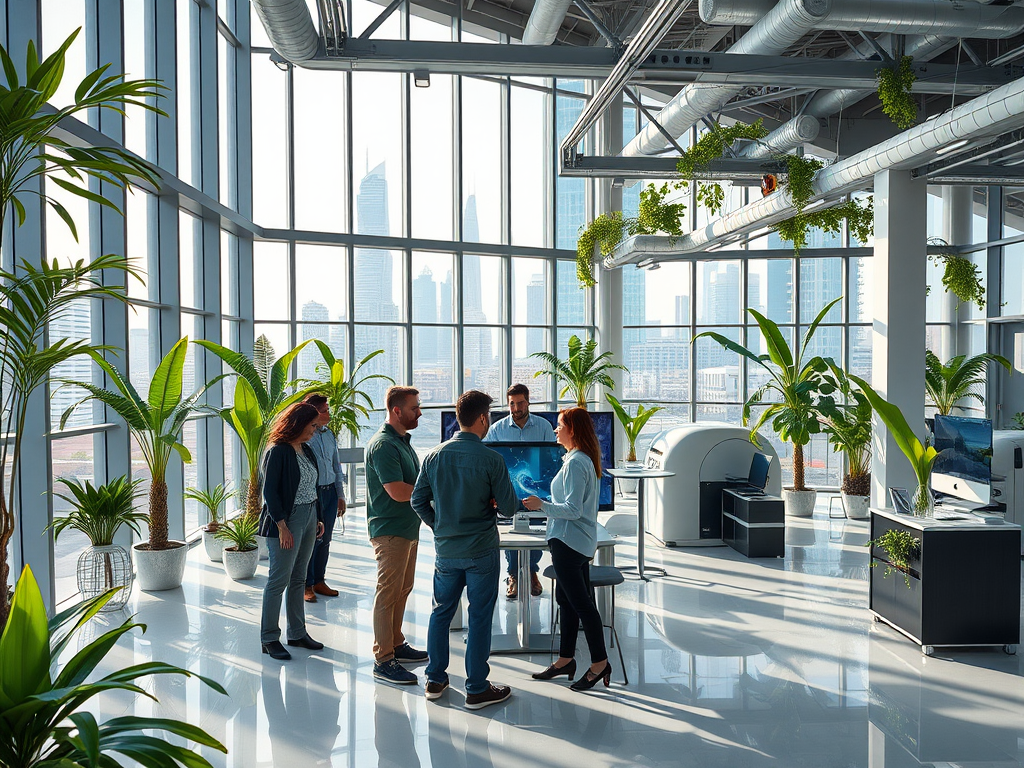
Dubai’s industrial landscape is diverse, featuring various types of industrial parks tailored to serve different sectors. Prominent among these are free zones, which offer 100% foreign ownership, streamlined processes, and minimal bureaucratic red tape. The Jebel Ali Free Zone (JAFZA) is particularly noteworthy, housing over 7,000 companies and serving as a logistics hub.
Moreover, there are parks focused on specific industries such as technology and logistics. For instance, Dubai Silicon Oasis is dedicated to technology companies, while Dubai Investment Park supports manufacturing and logistics firms. The following types of parks can be found in Dubai:
- Free Zones: Established for various sectors with incentives.
- Logistics Parks: Support the storage and transport of goods.
- Technology Parks: Focused on innovation and tech development.
- Manufacturing Parks: Cater to production-based industries.
The Economic Impact of Industrial Parks
The emergence of industrial parks has significantly boosted Dubai’s economy. They create numerous job opportunities, help diversify the economy away from oil dependence, and encourage innovation. Furthermore, industrial parks contribute to the GDP by attracting global businesses, fostering partnerships, and enhancing competitiveness.
Additionally, the synergy generated within these parks facilitates knowledge sharing and collaboration among businesses, leading to the development of new technologies and streamlined processes. The economic impact can be seen through increased exports, which bolster Dubai’s reputation as a business hub. Here’s a summary of the key economic benefits:
- Job Creation: Thousands of jobs across various sectors.
- Increased Exports: Strengthening Dubai’s export markets.
- Diversification: Reducing reliance on oil revenue.
- Innovation: Fostering technological advancements.
- Global Partnerships: Encouraging cross-border collaborations.
Future Potential of Industrial Parks in Dubai
Looking ahead, the future potential of industrial parks in Dubai appears promising. With the UAE Vision 2021 aiming to position the country as a leader in innovation, industrial parks will play a crucial role in this transformation. Investment in renewable energy and sustainability practices within these parks is also on the rise, making them more attractive to environmentally conscious businesses.
Furthermore, leveraging technology such as AI and automation within industrial processes is expected to enhance operational efficiencies. The continuous expansion of Dubai’s infrastructure, including transport and logistics, further supports this growth. Ultimately, the future growth of industrial parks is likely to align with broader regional economic goals, indicating a bright horizon for businesses operating within these hubs.
Итог
In conclusion, the growth of industrial parks in Dubai is transforming the Emirate into a global business hub, driven by strategic advantages, government initiatives, and an evolving economic landscape. As these parks continue to flourish, they provide invaluable support to diverse industries while reinforcing Dubai’s position on the world stage. The future holds great promise for further development, ensuring that Dubai remains at the forefront of innovation and economic diversification.
Часто задаваемые вопросы
1. What are the main benefits of setting up a business in Dubai’s industrial parks?
The primary benefits include tax exemptions, 100% foreign ownership, a strategic location, and minimal bureaucratic hurdles.
2. How do free zones differ from regular industrial parks in Dubai?
Free zones offer unique incentives such as complete foreign ownership and customs benefits, catering specifically to international businesses.
3. What industries are mainly represented in Dubai’s industrial parks?
Industries vary widely, including logistics, technology, manufacturing, and food production, each having specialized parks designed for their needs.
4. Are there any sustainability initiatives in Dubai’s industrial parks?
Yes, many parks are focusing on sustainable practices, including renewable energy projects and green certifications for businesses.
5. How can foreign companies benefit from investing in Dubai’s industrial parks?
Foreign companies benefit from a business-friendly environment, strategic location, and access to regional markets, alongside various financial incentives.
